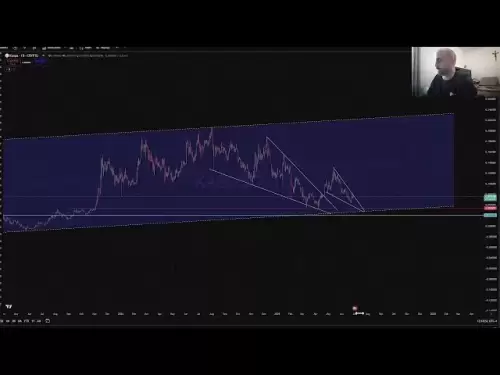-
 Bitcoin
Bitcoin $107,341.7259
0.15% -
 Ethereum
Ethereum $2,438.6204
0.70% -
 Tether USDt
Tether USDt $1.0003
-0.02% -
 XRP
XRP $2.1866
1.94% -
 BNB
BNB $649.0952
0.36% -
 Solana
Solana $150.9602
5.63% -
 USDC
USDC $0.9999
0.00% -
 TRON
TRON $0.2742
0.40% -
 Dogecoin
Dogecoin $0.1645
1.93% -
 Cardano
Cardano $0.5669
1.18% -
 Hyperliquid
Hyperliquid $37.8286
4.19% -
 Bitcoin Cash
Bitcoin Cash $491.4669
-2.74% -
 Sui
Sui $2.8150
3.06% -
 Chainlink
Chainlink $13.4184
2.91% -
 UNUS SED LEO
UNUS SED LEO $9.0809
0.27% -
 Avalanche
Avalanche $18.0295
2.60% -
 Stellar
Stellar $0.2396
1.19% -
 Toncoin
Toncoin $2.8587
0.13% -
 Shiba Inu
Shiba Inu $0.0...01160
2.59% -
 Litecoin
Litecoin $86.4192
1.45% -
 Hedera
Hedera $0.1486
1.19% -
 Monero
Monero $308.4324
0.87% -
 Polkadot
Polkadot $3.4202
1.43% -
 Bitget Token
Bitget Token $4.6436
-0.34% -
 Dai
Dai $0.9998
-0.02% -
 Ethena USDe
Ethena USDe $1.0002
0.00% -
 Uniswap
Uniswap $7.1527
3.29% -
 Pi
Pi $0.5357
-8.45% -
 Pepe
Pepe $0.0...09588
4.61% -
 Aave
Aave $259.9759
0.81%
Which blockchain apps are the most popular in China?
Despite a ban on public cryptocurrency use, China's blockchain adoption is substantial, driven by government-backed initiatives in supply chain, digital identity, and regulated financial services, utilizing mostly permissioned, domestically developed applications.
Mar 11, 2025 at 06:05 pm
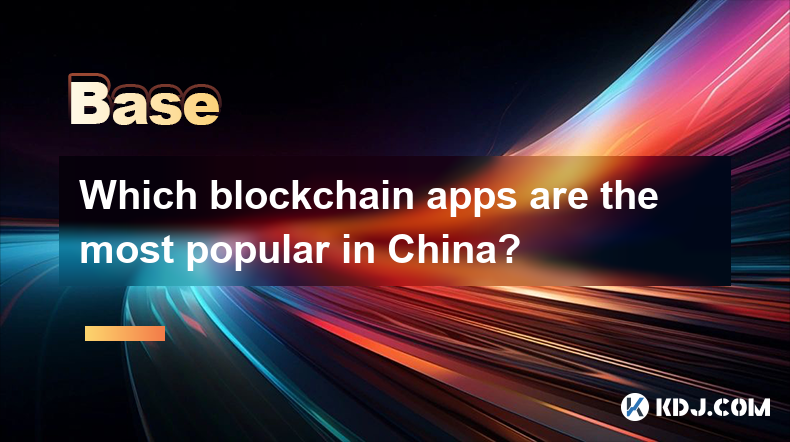
Key Points:
- Despite regulatory hurdles, blockchain technology adoption in China is significant, though often indirectly.
- Popular apps often focus on supply chain management, digital identity, and financial services (albeit with limitations due to regulations).
- Direct cryptocurrency usage remains limited due to government restrictions; focus is on permissioned blockchain systems.
- Many successful Chinese blockchain applications are domestically developed and less known internationally.
- The landscape is dynamic, with new apps and platforms emerging constantly.
Which Blockchain Apps are the most Popular in China?
China's relationship with cryptocurrency is complex. While Bitcoin and other decentralized cryptocurrencies are largely banned for direct public use, the government actively promotes the development and application of blockchain technology itself. This creates a unique ecosystem where blockchain finds widespread application in various sectors, even as direct cryptocurrency trading remains severely restricted. Understanding the "popular" blockchain apps requires acknowledging this nuanced regulatory landscape.
Supply Chain Management: Many Chinese companies leverage blockchain for improved transparency and efficiency in their supply chains. These aren't necessarily consumer-facing apps but rather internal tools. Tracking goods from origin to consumer, verifying authenticity, and streamlining logistics are key use cases. These systems often utilize permissioned blockchain networks, controlled and monitored by participating businesses.
Digital Identity and KYC/AML Compliance: China is heavily invested in developing a national digital identity system. Blockchain's potential to secure and manage digital identities plays a crucial role here. Applications that help verify identities, manage credentials, and comply with Know Your Customer (KYC) and Anti-Money Laundering (AML) regulations are seeing increasing adoption within financial institutions and government agencies. These applications are often integrated into existing platforms rather than being standalone apps.
Financial Services (with caveats): While cryptocurrency trading is restricted, blockchain finds application in other financial services. This could include streamlining cross-border payments, improving efficiency in clearing and settlement processes, or supporting the development of digital yuan-related infrastructure. However, these applications are typically operated under strict regulatory oversight, limiting direct consumer interaction in ways that differ greatly from decentralized finance (DeFi) applications found elsewhere.
Government-backed initiatives: The Chinese government has launched numerous blockchain initiatives and pilot programs. These often involve developing specific blockchain applications for use within government agencies or state-owned enterprises. While not directly available to the general public in the same way as consumer apps, these projects represent significant investment and drive technological advancements within the country. The details of many such projects are not publicly available due to security or strategic considerations.
Challenges and Limitations: The regulatory environment presents challenges. The lack of a clear legal framework for many blockchain applications can lead to uncertainty and hinder broader adoption. Furthermore, the focus on permissioned, centrally controlled blockchain networks limits the decentralized ethos often associated with cryptocurrency and blockchain technology. This approach prioritizes control and oversight over complete decentralization.
Examples of Blockchain Applications (with limitations): Pinpointing specific "popular" apps is difficult due to limited public information and the often internal nature of their deployments. However, several large companies, particularly those in logistics and finance, are actively involved in blockchain projects, though the specifics are often confidential or only revealed in internal reports.
How to Find More Information: Identifying specific popular blockchain apps in China requires deep research into industry reports, specialized Chinese-language media, and white papers from Chinese companies and government agencies. International sources might offer limited insights due to the language barrier and the relatively closed nature of some projects.
Step-by-step guide to understanding Chinese blockchain app landscape (Hypothetical):
- Identify Key Sectors: Begin by focusing on sectors where blockchain is likely to be used (supply chain, finance, government).
- Research Chinese Companies: Investigate major players in these sectors, looking for mentions of blockchain initiatives in their annual reports or press releases.
- Utilize Chinese-language Resources: Explore Chinese-language news sources and industry publications for more detailed information.
- Attend Industry Events: Participate in (if possible) Chinese blockchain conferences or events to learn about new developments.
Frequently Asked Questions:
Q: Are there any popular Chinese blockchain apps available for international users?
A: While some Chinese companies use blockchain technology, most applications are geared towards the domestic market and are subject to regulatory constraints, limiting their international accessibility.
Q: Can I use Bitcoin or Ethereum in China?
A: Direct use and trading of Bitcoin and Ethereum are illegal in China. The government actively suppresses such activities.
Q: Is China behind in blockchain technology compared to the West?
A: China's approach is distinct. While the West might focus on decentralized cryptocurrencies, China emphasizes permissioned blockchain for specific applications. Determining who is "ahead" depends on the metrics used.
Q: What is the future of blockchain in China?
A: The future is likely to see continued government support for blockchain technology in specific sectors, while maintaining tight control over cryptocurrencies. The focus will likely remain on domestic applications and integration within existing systems.
Q: Are there any open-source blockchain projects originating from China?
A: While there are open-source blockchain projects, many are focused on permissioned or private blockchains, tailored to specific applications rather than general-purpose public networks. Many are less well-known internationally.
Disclaimer:info@kdj.com
The information provided is not trading advice. kdj.com does not assume any responsibility for any investments made based on the information provided in this article. Cryptocurrencies are highly volatile and it is highly recommended that you invest with caution after thorough research!
If you believe that the content used on this website infringes your copyright, please contact us immediately (info@kdj.com) and we will delete it promptly.
- Ruvi AI: The Audited Token Primed to Lead the Bull Run, Outshining Competitors
- 2025-06-29 06:30:13
- Ruvi AI: The Smart Shiba Inu? Token Rally Potential Examined
- 2025-06-29 06:30:13
- Bitcoin, AI Tokens, and Ruvi AI: What's the Deal?
- 2025-06-29 06:50:12
- Cryptos with Real-World Utility and Growth Potential: Qubetics and Beyond
- 2025-06-29 06:35:13
- Bitcoin Breakout Imminent: Institutional Demand Fuels the Fire
- 2025-06-29 07:30:13
- Ruvi AI, Dogecoin, and ROI: Decoding the Crypto Hype
- 2025-06-29 07:12:05
Related knowledge
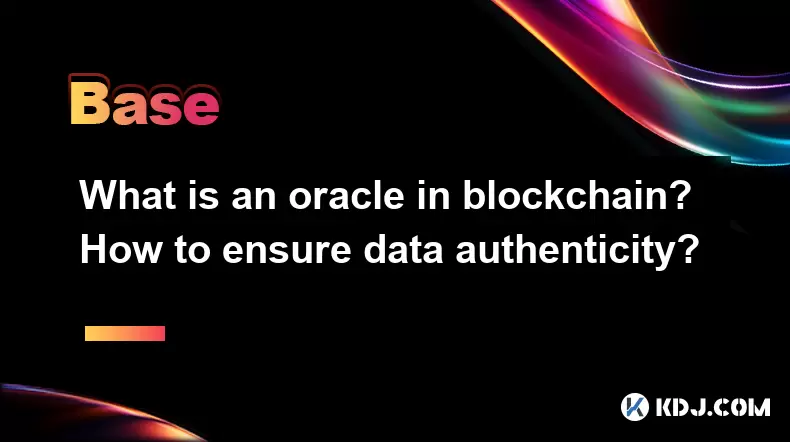
What is an oracle in blockchain? How to ensure data authenticity?
Jun 19,2025 at 08:49pm
Understanding the Role of an Oracle in BlockchainIn the context of blockchain technology, an oracle serves as a bridge between the blockchain and external data sources. While blockchains are inherently secure and decentralized, they cannot access real-world information on their own. Oracles enable smart contracts to interact with off-chain data such as ...
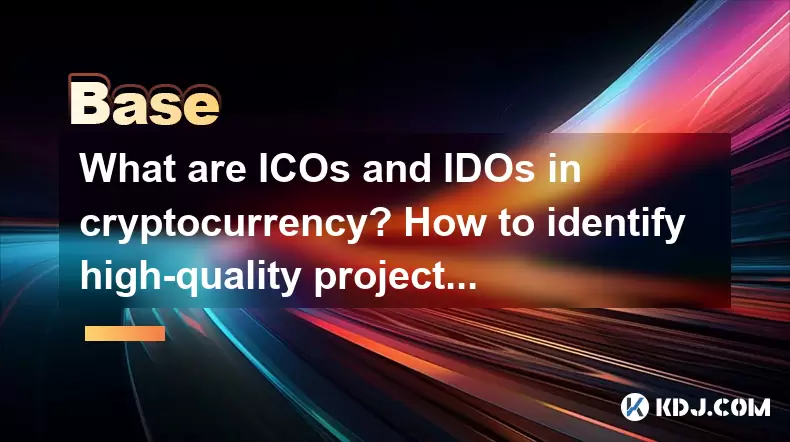
What are ICOs and IDOs in cryptocurrency? How to identify high-quality projects?
Jun 22,2025 at 11:49am
Understanding ICOs in CryptocurrencyInitial Coin Offerings (ICOs) are fundraising mechanisms used by cryptocurrency startups to raise capital for their projects. In an ICO, a company creates and sells its own tokens to investors in exchange for established cryptocurrencies like Bitcoin or Ethereum. The process typically involves the release of a whitepa...
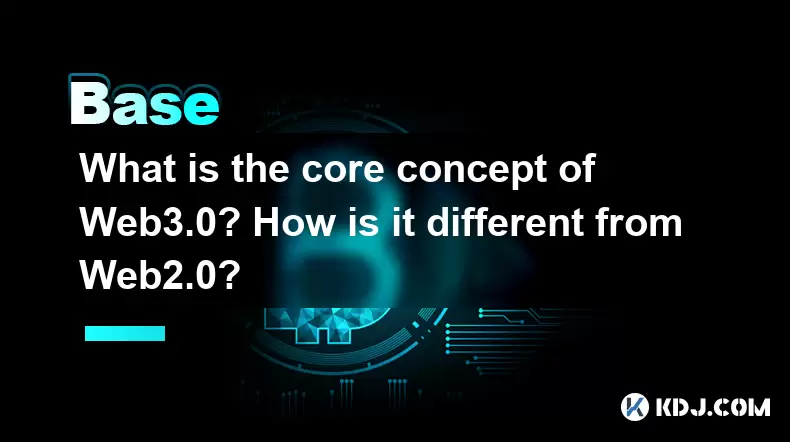
What is the core concept of Web3.0? How is it different from Web2.0?
Jun 21,2025 at 05:56pm
Decentralization as the Foundation of Web3.0The core concept of Web3.0 revolves around decentralization, which fundamentally challenges the centralized architecture of Web2.0. In Web3.0, control and ownership are distributed across a network rather than being held by a central authority or corporation. This is achieved primarily through blockchain techn...
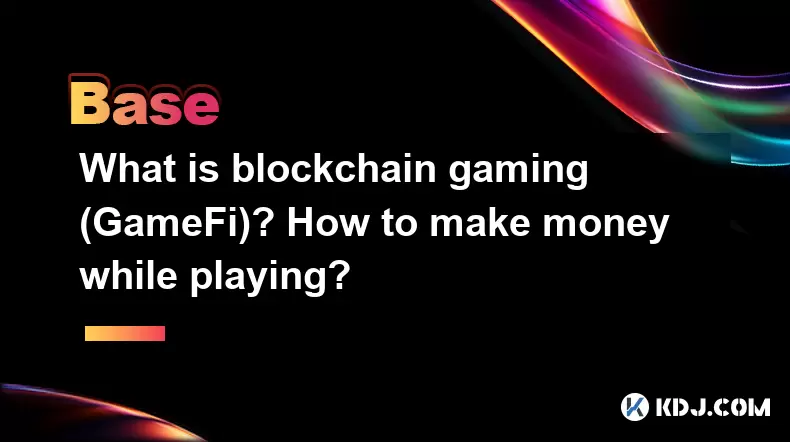
What is blockchain gaming (GameFi)? How to make money while playing?
Jun 20,2025 at 07:56am
Understanding Blockchain Gaming (GameFi)Blockchain gaming, often referred to as GameFi, is a fusion of blockchain technology and video games. It enables players to own in-game assets through non-fungible tokens (NFTs) and earn rewards via cryptocurrencies or token-based systems. Unlike traditional games where items are controlled by centralized develope...
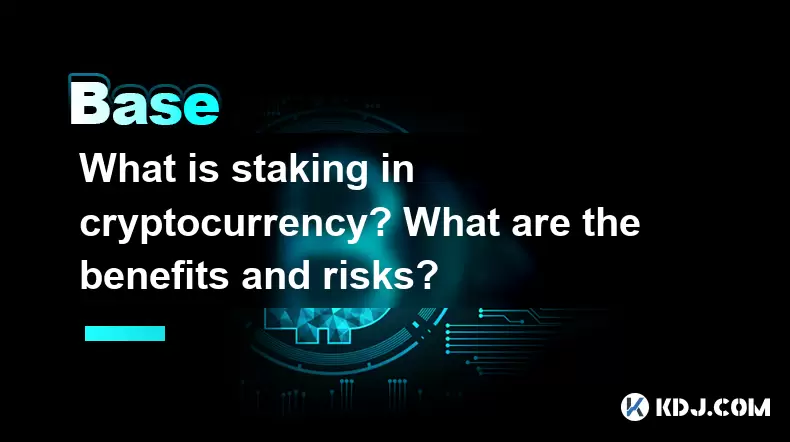
What is staking in cryptocurrency? What are the benefits and risks?
Jun 22,2025 at 10:01am
Understanding the Concept of Staking in CryptocurrencyStaking in cryptocurrency refers to the process of actively participating in transaction validation on a blockchain network that uses a Proof-of-Stake (PoS) consensus mechanism. Instead of miners competing to solve complex mathematical puzzles as in Proof-of-Work systems like Bitcoin, PoS blockchains...

How does the Lightning Network solve Bitcoin congestion? What is the usage process?
Jun 23,2025 at 06:21pm
Understanding Bitcoin Network CongestionBitcoin, as a decentralized digital currency, operates on a blockchain that records every transaction in a public ledger. Each block has a limited size, typically 1 megabyte, which allows for only a certain number of transactions per second (TPS). When the number of transactions increases, the network becomes cong...

What is an oracle in blockchain? How to ensure data authenticity?
Jun 19,2025 at 08:49pm
Understanding the Role of an Oracle in BlockchainIn the context of blockchain technology, an oracle serves as a bridge between the blockchain and external data sources. While blockchains are inherently secure and decentralized, they cannot access real-world information on their own. Oracles enable smart contracts to interact with off-chain data such as ...

What are ICOs and IDOs in cryptocurrency? How to identify high-quality projects?
Jun 22,2025 at 11:49am
Understanding ICOs in CryptocurrencyInitial Coin Offerings (ICOs) are fundraising mechanisms used by cryptocurrency startups to raise capital for their projects. In an ICO, a company creates and sells its own tokens to investors in exchange for established cryptocurrencies like Bitcoin or Ethereum. The process typically involves the release of a whitepa...

What is the core concept of Web3.0? How is it different from Web2.0?
Jun 21,2025 at 05:56pm
Decentralization as the Foundation of Web3.0The core concept of Web3.0 revolves around decentralization, which fundamentally challenges the centralized architecture of Web2.0. In Web3.0, control and ownership are distributed across a network rather than being held by a central authority or corporation. This is achieved primarily through blockchain techn...

What is blockchain gaming (GameFi)? How to make money while playing?
Jun 20,2025 at 07:56am
Understanding Blockchain Gaming (GameFi)Blockchain gaming, often referred to as GameFi, is a fusion of blockchain technology and video games. It enables players to own in-game assets through non-fungible tokens (NFTs) and earn rewards via cryptocurrencies or token-based systems. Unlike traditional games where items are controlled by centralized develope...

What is staking in cryptocurrency? What are the benefits and risks?
Jun 22,2025 at 10:01am
Understanding the Concept of Staking in CryptocurrencyStaking in cryptocurrency refers to the process of actively participating in transaction validation on a blockchain network that uses a Proof-of-Stake (PoS) consensus mechanism. Instead of miners competing to solve complex mathematical puzzles as in Proof-of-Work systems like Bitcoin, PoS blockchains...

How does the Lightning Network solve Bitcoin congestion? What is the usage process?
Jun 23,2025 at 06:21pm
Understanding Bitcoin Network CongestionBitcoin, as a decentralized digital currency, operates on a blockchain that records every transaction in a public ledger. Each block has a limited size, typically 1 megabyte, which allows for only a certain number of transactions per second (TPS). When the number of transactions increases, the network becomes cong...
See all articles























